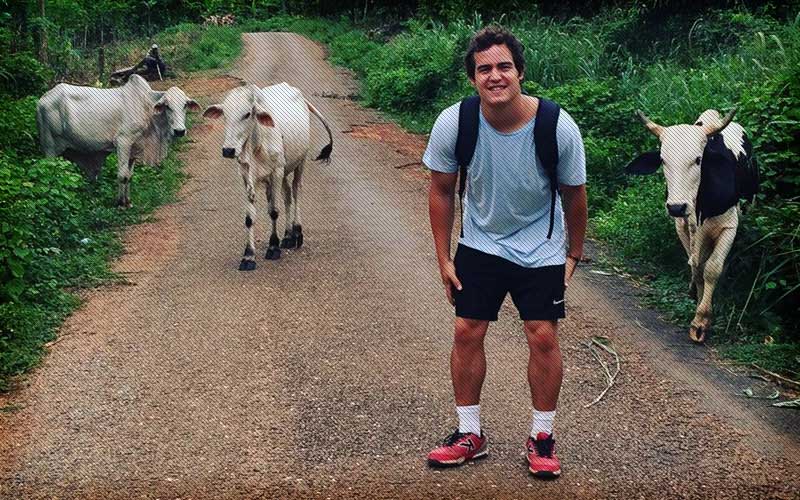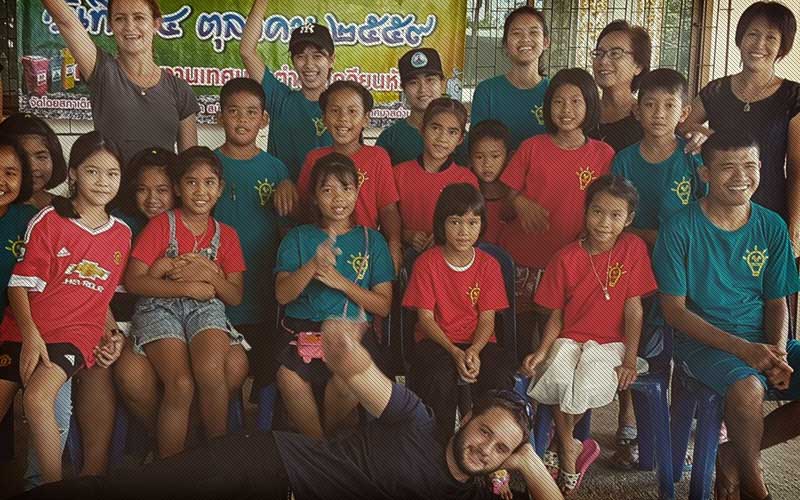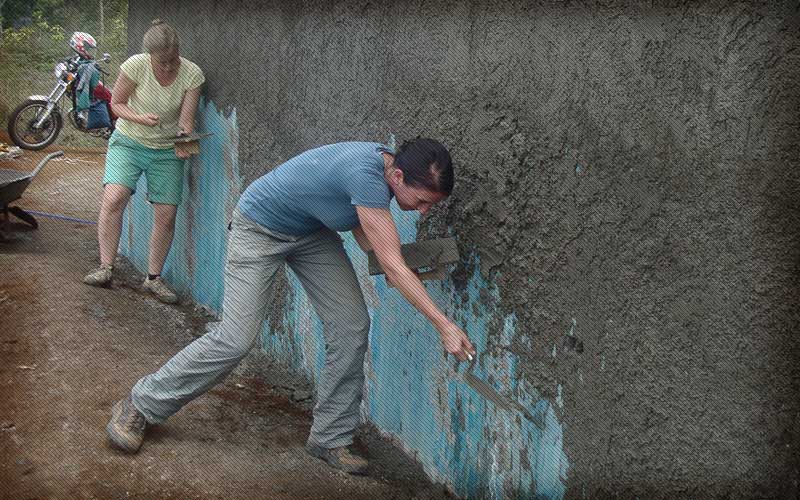If you’re wondering what kinds of activities you can do while volunteering, try this simple exercise.
Imagine you wanted to volunteer in your community. What kind of work would you look for?
Maybe you would help out at a food bank or animal shelter. Or perhaps you would supervise kids at a community center or help run an event at your church.
Well, volunteering abroad is similar: you are contributing your time to a socially-responsible community-based project. The biggest difference is you’re doing it in an emerging market like Costa Rica, Ghana or Thailand. And by doing so you get the opportunity to experience a new country like a local person.

So what type of work can you do?
As you might imagine, the kinds of volunteer opportunities in a country will depend on the needs of that specific community.
uVolunteer focuses on placing volunteers in sustainable projects with small community organizations.
This means they would still exist even if you didn’t volunteer, but they value your support — and appreciate that you are there to make a meaningful contribution.
Our volunteer projects usually take place at two kinds of organizations:
Institutions: hospitals, national parks, public elementary schools, high schools, municipality sponsored day care centers; children's homes and special need centers.
Community-based: animal conservation centers, building and construction, turtle conservation, environment conservation projects, community English clubs, orphanages, faith-based programs, refugee centers etc.
From there, we group the projects into the following categories, based on the type of work volunteers do:
As a teaching volunteer, you will assist teachers or sometimes lead your own class. You may work in a school or a community center to teach students skills like speaking English, using the computer or playing a sport. Our teaching programs target disadvantaged children in public schools in rural low-income communities.
Sports volunteers spend their workdays assisting coaches, physical education teachers or leading students in group physical activity. Often, volunteers are the missing piece in schools where limited funding makes sports education less of a priority. Are you good at track and field, soccer or basketball? Whatever you play, the students will love to learn it!
Childcare volunteers help lead daily activities and serve as positive role models for kids in local orphanages, day care centers or community centers. Volunteers often help children improve their language skills, encourage and supervise play time and engage in conversation to develop children’s social and emotional skills.
Conservation Volunteer Projects
Volunteers work with wildlife conservation projects and live in national parks, rural villages or on beaches. You may assist with daily maintenance tasks, rehabilitation of injured animals or protecting newborn turtle eggs safe from predators. These projects are perfect for the animal or environmental lover who is passionate about protecting endangered species and environments, and don’t mind roughing it a bit!
You’ll get a hands-on volunteer experience working in hospitals under the supervision of medical professionals. You’ll observe how doctors and nurses diagnose and treat illnesses like leprosy, malaria, and typhoid and help with basic tasks like setting up blood and IV lines. Projects are very hands on to enable participants to get a real insight into healthcare in low-income countries.
Our community volunteer projects include building and constructing homes for disadvantaged families, assisting in local orphanages, and teaching English to adult community members, to name a few. Our projects help provide local residents with the skills and resources they need to improve their lives.

Which project is right for you?
After looking through all the available options, something may jump out at you immediately. If not, consider the following:
- What motivates you to volunteer abroad?
- What are your interests?
- Do you have any specific skills?
The last thing you want to do is sign up to volunteer in turtle conservation in Costa Rica if you hate camping on a beach. Narrowing down your interests will help you decide on the best volunteer project for you and ensure you have an amazing experience.
How much of your program fee goes to the local project?
There’s a common misconception that your program fees directly support the local organization.
But, as a rule: there are no financial agreements between our local partner organizations and uVolunteer - thus the name “you volunteer.”
It’s a voluntary exchange on both sides: neither you nor the organization gets paid.
The majority (75%) of the fee you pay goes towards your upkeep and supervision in your program destination. The rest goes towards our program administration. (You can find a breakdown of our fees here.)
In some cases, we may pay the local organization for volunteer expenses like lunches, special transportation needs, or tools needed for the activity.
The exceptions to our financial rule are with conservation projects, which are specialized and take place at a specific location.
For example, turtle conservation volunteers live and work on the beach and animal conservation volunteers are based in wildlife refugee camps and national parks.
Since these locations aren’t near our volunteer dorms and staff support, we need to provide daily monetary support to these projects to host and manage our participants.

A Day in the Life of our Volunteers
Most of our volunteers work four days a week from Monday to Thursday at a location relatively close the volunteer house.
Fridays to Sundays are free for travel and cultural exploration.
Typically, each workday runs about 4-6 hours, though conservation volunteers might have to work longer hours and sometimes work a five or six-day week.
Want to see what a project looks like with your own eyes? Watch these videos to see a Day in the Life of a Volunteer:
Costa Rica video reviews and testimonials